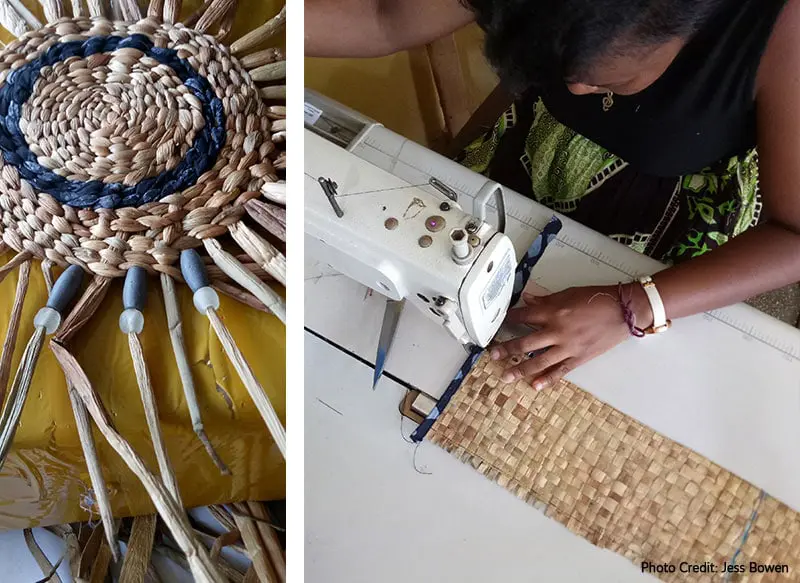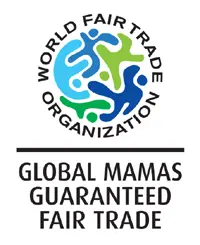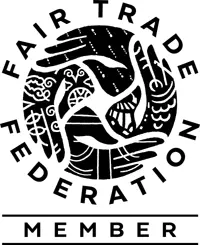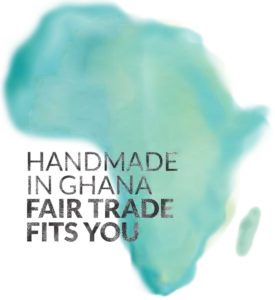Introducing Fibers of Change
This fall the Global Mamas team, in collaboration with USAID and the West Africa Biodiversity and Climate Change (WA BiCC), is embarking on an exciting new endeavor combining two goals that are an inherent part of our mission: creating sustainable livelihoods in communities with limited economic opportunity while at the same time acting as environmentally conscientious ambassadors of the biodiversity and rich natural resources in Ghana.
Fibers of Change, our new initiative that’s taken root along the banks of the Volta River, will use water hyacinth (locally known as the “poison flower”) as the staple raw material to develop an all-new collection of natural fiber products for Global Mamas customers around the world.
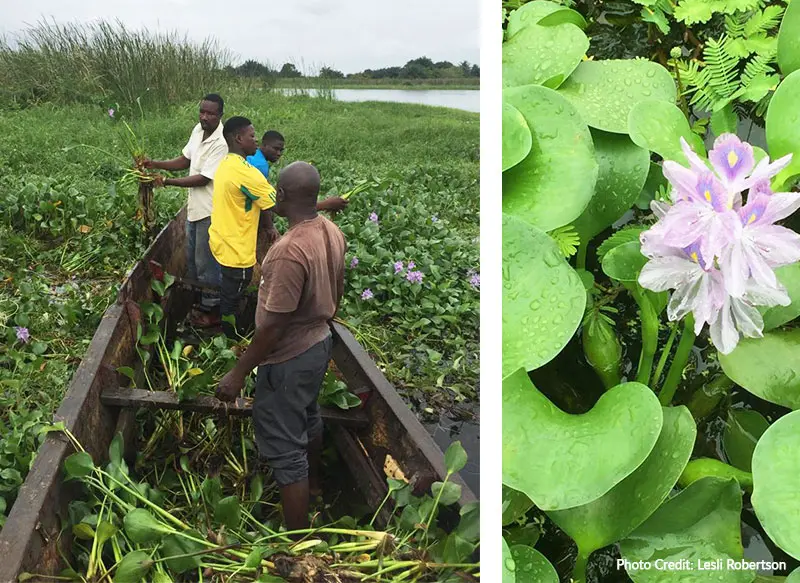
The Challenge:
Water hyacinth (Eichhornia crassipes) is regarded as one of the worst aquatic invasive plants in the world, with the ability to double its size in less than two weeks. Deceptively beautiful, this aggressive weed clogs waterways and negatively affects water transport, power generation, health, agriculture, and fisheries. In Ghana, both chemical and biological interventions have been implemented in an attempt to control the plant, neither of which have proven successful or sustainable on a large scale. While the negative impacts of the plant are many, there are no known ecological dangers associated with the removal of the species.
The Additional Challenge:
One of the main river systems in West Africa, the Volta River Basin, encompasses underdeveloped economies that are some of the poorest in the world. Nearly 42% of the Volta River Basin is located in Ghana, with the densest populations along the Lower Volta River in Ghana’s Eastern Province where 77.7% of the economically active population are self-employed in agriculture and animal rearing as their primary economic activities.
Although loss of biodiversity in this area has many factors, the root cause can be identified as human activities. Community members have no choice but to deplete natural resources in order to meet the financial needs of their families. This financial dependence, partnered with a steadily increasing population, has put detrimental pressure on natural resources.
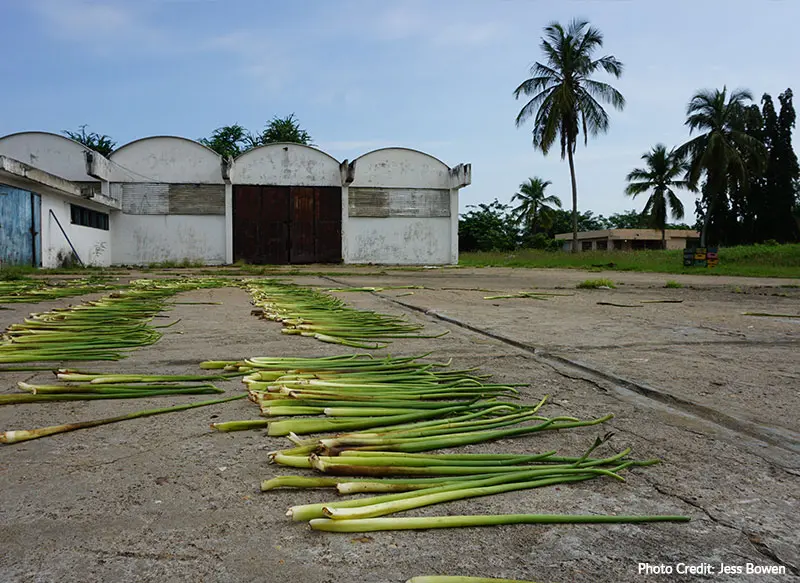
Our Solution:
With initial support from USAID, Global Mamas has set out to do what we do best: finding ways to turn this abundant natural resource into sustainable livelihoods. Since no one in Ghana was already making products from water hyacinth, we’ve hosted consultants from around Africa to learn how they’ve been using the water hyacinth to create marketable products in their own communities.
With an ambitious goal of launching our first round of water hyacinth products at the NYNow trade show in February 2020, the water hyacinth team is currently working through the labor-intensive process of setting up best practices for both harvesting and processing the plant. As papermakers and weavers become more confident in their skills we look forward to developing an expanded range of future products supporting environmental and economic initiatives that benefit communities in the Eastern region of Ghana.
Thanks for following along on this new adventure and keep an eye out for updates on how to support this project going into the new year!
